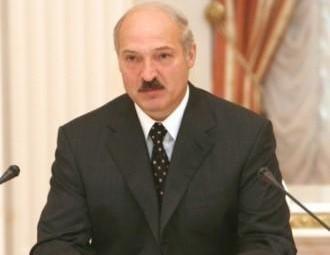Lukashenko as a symptom of German troubles

The EU might have overrated expectations about its ability to change post-Soviet countries. Nowadays it is clear that most of them develop in a different direction, and the EU has to accept this.
When Manfred Sapper, editor-in-chief of the German Osteuropa journal, in his public discussion with the Belarusan writer Sviatlana Kurs asked, “What does Germany have to do with the Lukashenko regime?", it looked like a tacit indication of the crisis of Berlin's Ostpolitik. Perhaps, Dr.Sapper's approach is right: since neither Political Science nor International Relations give a more or less clear answer to this question, why don't we start looking for answers beyond academia – for example, in literary discourses? Maybe authors like Kurs can better explain why Lukashenko, with all his dictatorial tools, still keeps borders more or less open, and why is he successful in extracting Russian resources in exchange for almost nothing?
The idea of talking politics with writers could be quite good. The only problem is that German policy toward Belarus is rather symbolic. What came immediately to my mind is a recent conference by DGO (German Society for Eastern Europe) that ended up in a club concert performed by the Belarusan rock group "Krambambulia." It was fun, and we had a good time.
Both independent music and literature do matter, and the Germans have all the reason to promote them in Europe. But this can't hide something that is politically quintessential – the hardship of Germany's (as well as EU's) Eastern European policies. Neither of the three Slavic states shows willingness to move closer to the EU normative standards, and even Moldova – only a few months ago a success story of Europeanization – is again marred by domestic instability and lack of consensus.
Perhaps the key problem is that the EU wanted to transform Eastern Europe along its own recipes, and underestimated that the elites in Moscow, Kyiv, Minsk, and Chisinau are basically busy with domestic power struggles. It seems that pro-EU sentiments don't always give much advantage in it.
Germany indeed is at a crossroads in its Eastern policy. Reactions of the German foundations in Russia, which were subjects of inspections by officials, as well statements by the German Foreign Ministry to these inspections, were relatively mild. Many chose to take a wait-and-see position, expecting the situation to be solved one way or another by itself.
It definitely did, but the impression that Berlin implicitly – and, of course, unwillingly -plays by the rules of neighbouring autocrats is strong. Those who disagree have to be reminded that a couple of weeks ago, Berlin lifted its reservations against the so called special passports for the Russian ruling group and thus gave a green light to Putin's loyalists to travel to Europe visa-free. The result? Police searches and confiscation of equipment in German foundations working in Russia.
The most regrettable aspect is that while the EU in general and Germany in particular were eager to contrive a policy toward Eastern Europe, the Kremlin in fact did nothing, and seems to be close to get what it wanted – perhaps, only in a short run. Yet doubts in the success of the Vilnius summit of the Eastern Partnership scheduled for November 2013 are quite substantial.
Perhaps, from the very inception of the Eastern Partnership, the EU had overrated expectations about its ability to change East European neighbours. Nowadays it is clear that most of post-Soviet Eurasian countries develop in a different direction, and the EU has to accept this. It also has to admit that the key problem is not Putin or Lukashenko, but the state of societies in these countries. In the worst-case scenario, the EU and the Eastern Europe might be simply tired of each other.
-
03.01
-
07.10
-
22.09
-
17.08
-
12.08
-
30.09








































